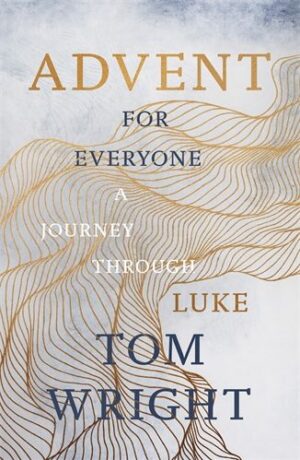The Parable of the Prodigal: Part 2
The Father and the Older Son: Luke 15.25–32
‘The older son was out in the fields. When he came home, and got near to the house, he heard music and dancing. 26 He called one of the servants and asked what was going on. “Your brother’s come home!” he said. “And your father has thrown a great party – he’s killed the fattened calf! – because he’s got him back safe and well!” ‘Then his father came out and pleaded with him. 29“Look here!” he said to his father, “I’ve been slaving for you all these years! I’ve never disobeyed a single commandment of yours. And you never even gave me a young goat so I could have a party with my friends. 30But when this son of yours comes home, once he’s finished gobbling up your livelihood with his whores, you kill the fattened calf for him!” I have belongs to you. 32But we had to celebrate and be happy! This brother of yours was dead and is alive again! He was lost, and now he’s found!”’
Commentary
A vivid phrase from a schoolboy poem, written by a class- mate of mine over 30 years ago, remains with me to this day. He described a park-keeper whose job was to pick up litter on a spiked pole. Surrounded by the glorious beauty of flowers and trees, with the sun sparkling through the
leaves, he only had eyes for the rubbish he had to collect, and the damage it did. The lines I remember sum up his plight:
‘Destroys the nature in this park, litter,’ he said, without Lifting his head.
That sums up the older brother in the story. And it’s the older brother who provides the real punchline of the parable. This is Jesus’ response to his critics. They were so focused on the wickedness of the tax-collectors and sinners, and of Jesus himself for daring to eat with them despite claiming to be a prophet of God’s kingdom, that they couldn’t see the sunlight sparkling through the fresh spring leaves of God’s love. Here were all these people being changed, being healed, having their lives trans- formed physically, emotionally, morally and spiritually; and the grumblers could only see litter, the human rub- bish that they normally despised and avoided.
The portrait of the older brother is brilliantly drawn, with tell-tale little shifts of phrase and meaning. ‘Your brother’, says the servant, ‘has come home’; but he won’t think of him like this. ‘This son of yours,’ he says angrily to his father. ‘This your brother,’ says the father, reminding him gently of the truth of the matter. ‘I’ve been slaving for you,’ he says to his father, whereas in fact they had been working as partners, since the father had already divided his assets between them (verse 12). Everything the father has belongs to him, since the younger brother has spent his share; and that, presumably, is part of the problem, since the older brother sees all too clearly that anything
now spent on his brother will be coming out of his own inheritance.
The phrase which ties the story to Jesus’ opponents comes out tellingly: ‘I’ve never disobeyed a single com- mand of yours.’ That was the Pharisees’ boast (compare Philippians 3.6); but the moral superiority which it appears to give melts like snow before the sunshine of God’s love. Where resurrection is occurring – where new life is bursting out all around – it is not only appropriate, it is necessary to celebrate (verse 32). Not to do so is to fail to meet generosity with gratitude. It is to pretend that God has not after all been at work. It is to look only at the rubbish and to refuse to smell the flowers.
In terms of what God was doing in Israel through Jesus, we can see once more that the new kingdom-work which was going forward was indeed like a return from exile. Sinners and outcasts were finding themselves welcomed into fellowship with Jesus, and so with God, in a way they would have thought impossible. But whenever a work of God goes powerfully forward, there is always someone muttering in the background that things aren’t that easy, that God’s got no right to be generous, that people who’ve done nothing wrong are being overlooked. That happened at the time when the exiles returned from Babylon; several people, not least the Samaritans, didn’t want them back.
This story reveals above all the sheer self-centredness of the grumbler. The older brother shows, in his bad temper, that he has had no more real respect for his father than his brother had had. He lectures him in front of his guests, and refuses his plea to come in. Once more the father is generous, this time to his self-righteous older son. At this point we sense that Jesus is not content simply to tell the
grumblers that they’re out of line; he too wants to rea- son with the Pharisees and the lawyers, to point out that, though God’s generosity is indeed reaching out to people they didn’t expect, this doesn’t mean there isn’t any left for them. If they insist on staying out of the party because it isn’t the sort of thing they like, that’s up to them; but it won’t be because God doesn’t love them as well.
This parable points, for Luke, beyond the immediate situation of Jesus’ ministry and into the early church. There, Gentiles were coming into the church, and Jews and Jewish Christians often found it very difficult to celebrate the fact. Equally, as Paul realized when writing Romans, it was vital that the new communities never gave the impression to their older brother that God had fin- ished with him. Somehow the balance must be kept.
The story is, of course, unfinished. We naturally want to know what happened next. How will the younger brother behave from now on? What arrangements will they make? Will the two sons be reconciled? Sometimes when a storyteller leaves us on the edge of our seats like this it’s because we are supposed to think it through, to ask ourselves where we fit within the story, and to learn more about ourselves and our churches as a result.
For Reflection or Discussion
Which role in this story do you find comes most naturally to you?
How can we celebrate the party of God’s love in such a way as to welcome not only the younger brothers who have come back from the dead, but also the older brothers who thought there was nothing wrong with them?


